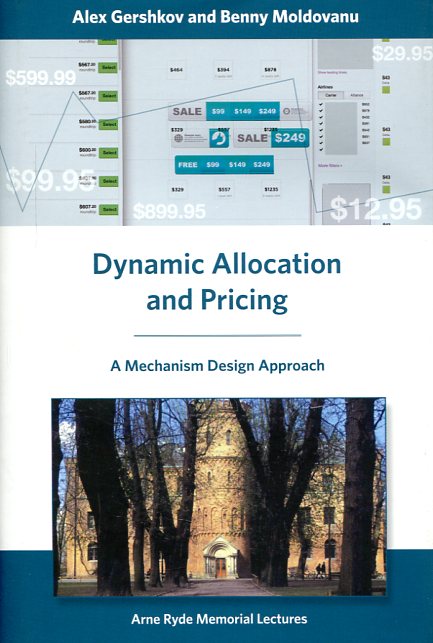Dynamic allocation and pricing
a mechanism design approach
- ISBN: 9780262028400
- Editorial: The MIT Press
- Fecha de la edición: 2015
- Lugar de la edición: Cambridge (MSS). Estados Unidos de Norteamérica
- Colección: Arne Ryde Memorial Lecture Series
- Encuadernación: Cartoné
- Medidas: 22 cm
- Nº Pág.: 185
- Idiomas: Inglés

Dynamic allocation and pricing problems occur in numerous frameworks, including the pricing of seasonal goods in retail, the allocation of a fixed inventory in a given period of time, and the assignment of personnel to incoming tasks. Although most of these problems deal with issues treated in the mechanism design literature, the modern revenue management (RM) literature focuses instead on analyzing properties of restricted classes of allocation and pricing schemes. In this book, Alex Gershkov and Benny Moldovanu propose an approach to optimal allocations and prices based on the theory of mechanism design, adapted to dynamic settings. Drawing on their own recent work on the topic, the authors describe a modern theory of RM that blends the elegant dynamic models from the operations research (OR), management science, and computer science literatures with techniques from the classical mechanism design literature. Illustrating this blending of approaches, they start with well-known complete information, nonstrategic dynamic models that yield elegant explicit solutions. They then add strategic agents that are privately informed and then examine the consequences of these changes on the optimization problem of the designer. Their sequential modeling of both nonstrategic and strategic logic allows a clear picture of the delicate interplay between dynamic trade-offs and strategic incentives. Topics include the sequential assignment of heterogeneous objects, dynamic revenue optimization with heterogeneous objects, revenue maximization in the stochastic and dynamic knapsack model, the interaction between learning about demand and dynamic efficiency, and dynamic models with long-lived, strategic agents.






